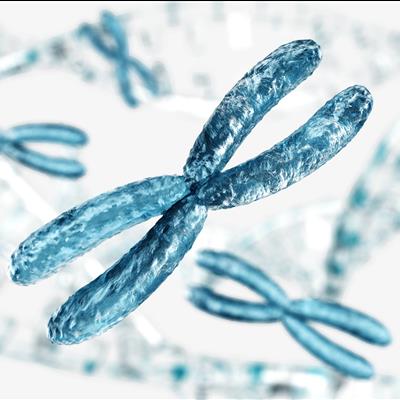 Certain gene protects against dementia in mice
Certain gene protects against dementia in mice
Researchers in Japan discovered that the gene p62 plays a neuroprotective role in mice models of dementia by eliminating and thus preventing the aggregation of oligomeric tau species in the brain according to an article published in the journal Aging Cell. Read More
 Study: 2 genes may lead to intellectual disability expression
Study: 2 genes may lead to intellectual disability expression
Researchers at the University of Buffalo found that a convergent mechanism involving two genes may be responsible for how autism spectrum disorder/intellectual disability develop. Read More
 Beckman Coulter debuts liquid handling system
Beckman Coulter debuts liquid handling system
Beckman Coulter Life Sciences launched the Biomek NGenius liquid handling system, which automates manual library construction and reagent transfers to free up technicians and researchers to focus on other tasks. Read More
 PerkinElmer unveils 3 new RUO library prep kits
PerkinElmer unveils 3 new RUO library prep kits
PerkinElmer debuted three new research use only (RUO) library preparation kits: Nextflex Small RNA-Seq Kit v4, Nextflex Rapid XP V2 DNA-Seq Kit, and PG-Seq Rapid Kit v2. Read More
 Bio-Rad debuts new chromatography column packs
Bio-Rad debuts new chromatography column packs
Bio-Rad Laboratories has launched EconoFit low-pressure prepacked chromatography column packs to support resin screening experiments in the development of protein purification workflows. Read More
 $10M collaboration to advance development of genomics, imaging for cancer immunotherapy
$10M collaboration to advance development of genomics, imaging for cancer immunotherapy
A $10 million collaboration between the Mark Foundation, Bloomberg-Kimmel Institute, and the Johns Hopkins University seeks to advance the development of next-generation genomics and imaging platforms for cancer immunotherapy. Read More
 Role of key gene in developmental disability identified
Role of key gene in developmental disability identified
A single gene previously found to be the driving force in a rare syndrome linked to epilepsy, autism, and developmental disability has now been identified as central to the formation of healthy neurons. Read More
 Triggering memory B cells directly in lungs seen as way to improve vaccines
Triggering memory B cells directly in lungs seen as way to improve vaccines
How can the efficacy of vaccines used to protect against viral respiratory diseases such as influenza and COVID-19 be increased? The triggering of memory B cells directly in the lungs could be a promising method, according to scientists. Read More
 Programmable mRNA antibiotics show potential to combat antibiotic-resistant bacteria
Programmable mRNA antibiotics show potential to combat antibiotic-resistant bacteria
Antibiotic-resistant bacterial strains are growing worldwide, with traditional antibiotics increasingly failing. However, programmable mRNA could be the solution to the problem, according to researchers. Read More
 Harvard-led study reveals how immune cells learn to discern friend from foe
Harvard-led study reveals how immune cells learn to discern friend from foe
A new study led by researchers at Harvard Medical School has identified a new mechanism that explains how T cells learn to distinguish friend from foe in order to detect and disable harmful agents while sparing the body's own tissues. The study was published on June 16 in the journal Cell. Read More
Member Rewards
Earn points for contributing to market research. Redeem your points for merchandise, travel, or even to help your favorite charity.
Research Topics
Interact with an engaged, global community of your peers who come together to discuss their work and opportunities.
Connect
Tweets by @ScienceBoard



